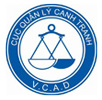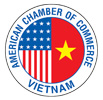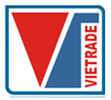
As the digital economy develops rapidly, e-commerce tax management has faced many problems, requiring Vietnam’s tax agencies to adapt to prevent state budget revenue losses.
Many "outdated" concepts.
Many solutions for tax management for cross-border e-commerce transactions have been actively implemented by the tax sector, but the results have not been as expected.
According to Luu Duc Huy, Director of the Policy Department, the General Department of Taxation, managing contractor tax for cross-border e-commerce transactions is still inadequate, especially for revenue generated from social networking sites Google, Facebook and Youtube.
"Enterprises and individuals have fast growth rates. Some businesses have annual revenue of hundreds of billion dong. Individuals also generate income of tens of billion VND/ year. This revenue was all transferred to Vietnam for beneficiaries through commercial banks in Vietnam, however, only some of them made tax declaration and payment, the remaining have not yet declared tax”, Huy stated.
Concerning this issue, Dang Ngoc Minh, Deputy Director of the General Department of Taxation, said that the biggest challenge in tax administration for the digital economy is the change of business models. Thanks to the application of technology, enterprises can narrow the distance, reduce time and costs and do not need the presence of physical persons or juridical person who provide goods and services.
Meanwhile, according to the Double Taxation Avoidance Agreements that Vietnam has signed, a foreign enterprise only has to pay corporate income tax when it has a fixed business establishment where it carries out part of, or its entire business.
"The old concept is no longer appropriate in the digital era. This concept shows that a foreign enterprise without a permanent establishment will not have to pay taxes. Therefore, it is necessary to define what is a permanent establishment is with a business enterprise in the digital field. We have to redefine it, we cannot rely on the old principle”, Minh insisted.
Simplify electronic tax declaration and payment
Regarding solutions for tax administration for cross-border electronic transactions, Jonathan Leigh Pemberton, World Bank Tax Specialist (WB), said that, for indirect taxes (value added tax), many countries apply the principle: “Where the user is, the tax base is in that country”. It means if the user is in Vietnam, the tax base is in Vietnam therefore the tax obligation of service providers also arises in Vietnam.
According to Jonathan Leigh Pemberton, it is necessary to create an online portal for foreign suppliers to easily register, declare and pay taxes online. "Value Added Tax is an indirect tax, which means that the tax is levied on the final consumer, but the service provider must declare and pay taxes. If the service provider is from abroad, tax declaration and payment must be done electronically”, he explained.
In order to do this, according to Jonathan, it is necessary to learn from other countries to simplify registration, declaration and payment. All these steps should be done via the internet. This is a model that has been implemented in many countries around the world, a method that is considered to be the best today and is what Vietnam is aiming for.
Regarding the form of tax deduction through commercial banks, according to Jonathan, there have been some countries applying this form, but there are still many challenges because commercial banks cannot determine whether the payments relate to electronic transactions or not.
Le Anh Dung, Deputy Director of Payment Department, State Bank said, in order to manage cross-border e-commerce tax, transactions need to be paid through online payment gateway licensed by the State Bank.
"The General Department of Taxation should build a database with connection to the banking and telecommunications sector and apply modern information technology to promptly update tax declaration and payment for better tax management”, Le Anh Dung recommended.
The WB's expert also emphasized that, in order to manage tax effectively, it needs to ensure equality between traditional business and e-commerce business. It means that, when making tax policy mechanisms, the state management agencies must create favorable conditions for the development of e-commerce activities while not creating barriers for consumers.
According to Luu Duc Huy, the draft of Law on Tax Administration is submitted to the National Assembly for consideration and approval at the meeting in 5/2019 with additional provisions:
Overseas suppliers who do not have a permanent establishment in Vietnam but have e-commerce activities, they are obliged to register, declare and pay taxes in Vietnam. Simultaneously, the General Department of Taxation will develop a simple tax registration process such as guiding foreign organizations and individuals to make tax registration for tax codes and declare and pay taxes online on the website of the General Department of Taxation.
Pham Dat - General Director of Fado Joint Stock Company (Managing an e-commerce trading floor):
The government needs to build a data center of cross-border e-commerce transactions. Enterprises conducting cross-border B2C sales business (from enterprises to customers) must update information according to orders, payment methods and logistics for Customs in real time via cross-border e-commerce platform. Then, the data will be supervised, exploited, controlled and inspected by the departments of Customs, Taxation, State Bank, Vietnam Metrology Department. Therefore, the Customs authorities have a basis to determine the value of import and export products, after that, tax authorities determine revenue to collect taxes from domestic and foreign organizations and individuals participating in cross-border e-commerce.
Vuong Chi Quang, Representative of VNG Joint Stock Company:
Tax policy should be further simplified, so that foreign enterprises can declare, pay taxes, or instruct foreign businesses to fulfill their tax obligations with tax agents in Vietnam. In terms of tax rates, it needs a regulation that unifies Value Added Tax rates for domestic and foreign enterprises. This is applied by many countries around the world such as Norway, South Korea, New Zealand.
Source: VCN
Key words: E-commerce tax, management, 100%, implement, e-tax declaration, e-payment



















